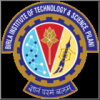How to become an Administrative Officer
Overview, Courses, Exam, Colleges, Pathways, Salary

Overview
Who is Administrative Officer ?
An Administrative Officer, also known as Administrative Services Manager, performs a range of clerical, administrative, inventory management, scheduling, maintaining records, invoicing and customer service, planning, and organizations’ routine duties that are needed to run, manage, and maintain an organization effectively. They are responsible for the growth of company. They do a tiny bit of everything to provide assistance to managers. Administrative management is concerned primarily with providing, securing, or negotiating for the resources or services required to manage and run an organisation.
It entails providing direct assistance to the "operating" manager, i.e., the official in charge of the overall direction of an organisation or unit established to achieve a basic goal or mission. An administrative officer assists the operating manager and subordinate operating officials in getting things done by having knowledge of and skills in dealing with organisation, methods, funds, people, equipment, and other management tools or resources. Because of his close relationship with the operating manager, he is usually in charge of both financial and human resource management.
In general, he performs critical work in a variety of other critical functions or services such as management analysis, procurement, contract administration, property management, space management, security administration, report management, data processing, and other similar or closely related activities. Administrative management work necessitates knowledge of the relative importance of various work operations, as well as the relative importance of various management services to these operations. Along with this understanding and knowledge, management must have a sense of what needs to be done and when it needs to be done. Most importantly, administrative management necessitates the ability to apply such understanding and knowledge in the solution of practical management problems.
Typical day at work
What does Administrative Officer do?
- Set-up and manage database information on paper or electronic filing systems to record, update, and maintain paperwork, documents, attendance, etc. and coordinate internal or external information flow
- Operate and make repair arrangements for fax machines, copiers, computers, phone systems, etc.
- Schedule and confirm appointments and maintain event calendars and planners
- Draft and prepare memos, invoices, reports, presentations, meeting notes, etc.
- Check and revert incoming and outgoing emails, letters, and faxes
- Review, edit, proof-read and revise documents for accuracy
- Organize conference or event resources like brochures or invitations
- Plan meetings or other special events
- Maintain company website
- Negotiate with vendors, monitor, order, and maintain office supplies
- Research on internet and read literature on required material
- Perform basic accounting and payroll duties
- Train, observe, assist, assign duties, and supervise other clerical staff
- Collect and deposit money, and make payments and invoices
- Safeguard, secure, monitor, and maintain the facility
- Set departmental goals, schedules, and deadlines
- Perform inventory tasks to purchase and distribute supplies
- Examine office procedures to suggest and implement changes in policies to enhance operations
- Hire and fire clerical and administrative employees
- Plan, supervise, and manage office budgets and prepare reports on it
- Supervise and participate in planning and designing for any construction or renovation in the organization
- Make sure that the organization complies with the government regulations and standards for environment, health, and security
- Maintain employee, clients, and suppliers records and data.
Abilities and Aptitude needed
What are the skills, abilities & aptitude needed to become Administrative Officer?
Administrative Officer must be courteous, polite, approachable, presentable, attentive, and need good listening skills when dealing with critical needs of employers. They must have critical thinking ability and good problem solving skills to resolve conflicts and provide solutions to clients through sound reasoning and judgment. They also need to have good communication and interpersonal skills to explain information to colleagues and visitors. Research and fact-finding skills are a must, and they need the poise and temperament to deal with high-stress conditions, urgency, and long hours.
Great organizational, multi-tasking, and negotiation skills are extremely important for those looking to become a Secretary. They need to be calm, tactful, discreet, and reliable in working things out in a timely manner. Self-motivated, ability to think independently, responsible and are extremely driven are the qualities an employer is looking for in an administrative assistant. Since the work includes practicality, it requires precision, and eye for detail, accuracy, and careful data monitoring. They must be able to manage time and prioritize tasks effectively while maintaining the quality of work. They also need to be self-motivated, persistent, determined, adaptable, flexible, and open to change to work with the employer, rather than impose their own ideas.
They usually work in or lead teams and must be able to motivate and direct other team members, thus, interpersonal, team and project management, team player, and leadership skills are necessary. They should be able to absorb details quickly, process information rapidly, and think quickly. They should be interested in networking and marketing. They should possess strong work ethic and integrity as they are trusted to manage and keep highly sensitive information confidential and private. Lastly, one also needs to have basic computer literacy in order to use Microsoft Office and other software programmes.
- An Associate's degree in a related field, such as office administration, is preferable.
- Working knowledge of essential productivity tools, such as the Microsoft Office Suite
- For entry-level positions, 0-1 years of experience is required.
- Knowledge of, or the ability to learn quickly how to use, standard office equipment such as fax machines, modern phone systems, and copy machines
- Prior knowledge of spreadsheet software, such as Excel
- Proven ability to manage multiple tasks at the same time.
- Notable organisational skills, as well as the ability to provide structure and organisation for others to follow
- Strong communication skills and a willingness to communicate with clients via phone calls, emails, and other means are required.
- When necessary, you should be able to work independently as well as as part of a team.
Pathways
How to become an Administrative Officer?
Entrance Exam
Entrance Exam for Administrative Officer ?
Courses
Which course I can pursue?
Best Colleges
Which are the best colleges to attend to become an Administrative Officer?
Industries
Which Industries are open for Administrative Officer?
internship
Are there internships available for Administrative Officer?
Career outlook
What does the future look like for Administrative Officer?
Administrative Officer can work in any settings ranging from corporate set-ups, government agencies, legal and medical offices, schools, hospitals, etc. They usually work full-time and in office environment. They may have to work overtime, travel for business trips, and work on holidays or weekends. With sufficient experience, one may advance to office administrative and managerial jobs.
Administrative services and facilities managers are expected to grow at a rate of 9% between 2020 and 2030, which is about the same as the average for all occupations. On average, 29,200 openings for administrative services and facilities managers are expected each year over the next decade. Many of those openings are expected to be created as a result of the need to replace workers who transfer to different occupations or leave the labour force for other reasons, such as retirement.







